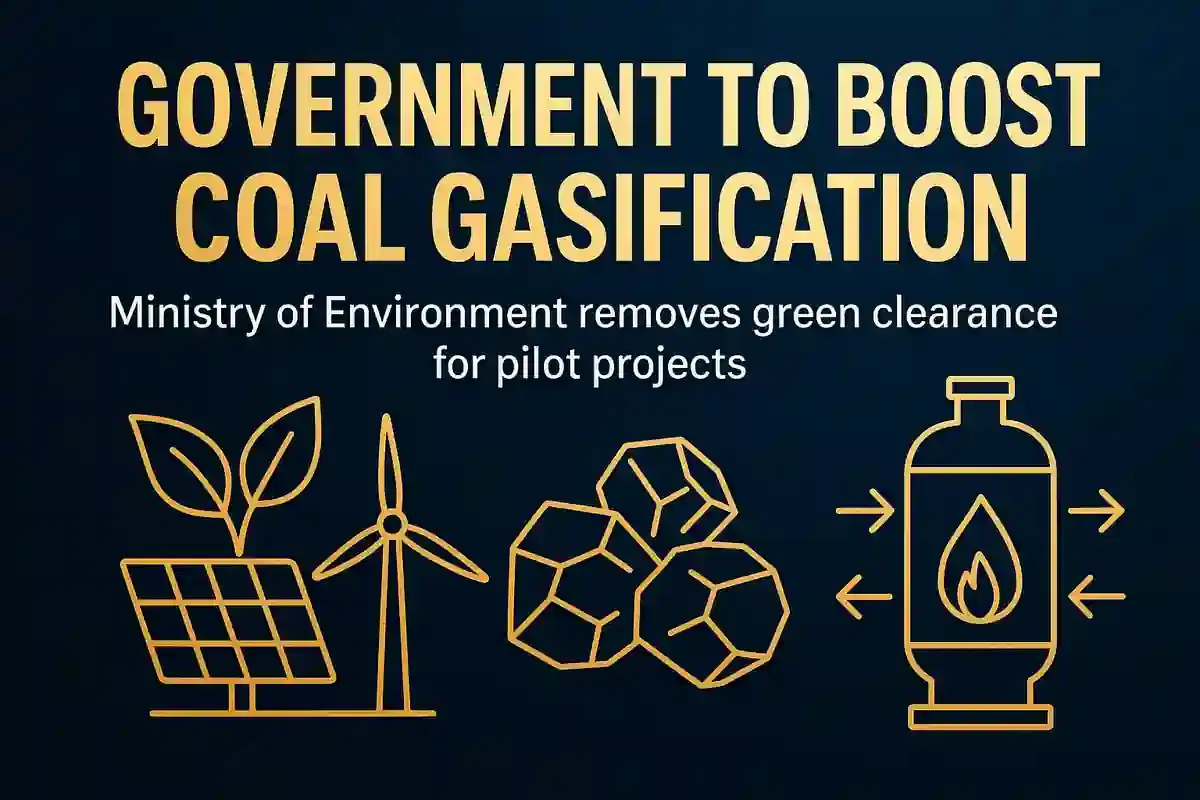Government Eliminates Green Clearance for Underground Coal Gasification Pilot Projects
Energy
|
29th October 2025, 2:35 PM

▶
Short Description :
Detailed Coverage :
The Ministry of Environment, Forest and Climate Change (MoEFCC) has decided to waive the requirement for environmental clearance (EC) for pilot projects involving underground coal gasification (UCG). This policy change is a significant step towards achieving India's goal of gasifying 100 million tonnes of coal by the year 2030.
Coal Secretary Vikram Dev Dutt stated that pilot studies are crucial for new technologies like UCG, especially since it is being introduced for the first time in the country. The exemption applies exclusively to the pilot phase of these projects. This development coincides with the launch of the 14th round of commercial coal mine auctions, where 21 out of 41 blocks offered are deemed suitable for UCG due to their deep-seated and uneconomical extraction.
Underground coal gasification (UCG) is an in-situ process that converts coal into combustible gas by injecting oxidants like air or oxygen into deep, unmineable coal seams. The resulting gas can be used to produce clean fuel, support the hydrogen economy, and generate syngas and other value-added products.
The coal ministry is also making progress on a coal trading exchange and has launched two digital platforms: the Coal Land Acquisition, Management and Payment Portal (CLAMP) for streamlining land acquisition processes, and the Koyla Shakti Dashboard for enhanced transparency and efficiency in the coal sector.
Impact This policy change is expected to accelerate the adoption of UCG technology in India, potentially leading to new energy sources and supporting the development of a hydrogen economy. It could also boost investment in coal mining and energy technology sectors. Rating: 7/10.
Difficult Terms: Underground Coal Gasification (UCG): A technology that converts coal into a synthesis gas (syngas) while it is still underground. Pilot Project: A small-scale, preliminary study or experiment to test the feasibility and potential of a larger project. Environment Clearance (EC): A mandatory approval from the environment ministry required before undertaking a project to assess its potential environmental impact. Hydogen Economy: An economic system where hydrogen is used as a primary energy carrier, offering a clean alternative to fossil fuels. Syngas: A fuel gas mixture consisting primarily of hydrogen, carbon monoxide, and carbon dioxide, produced from coal, natural gas, or biomass.